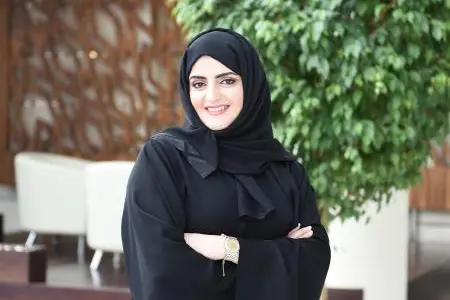PHOTO
Dubai: The Halal Trade and Marketing Centre (HTMC) continues its efforts towards enhancing its network, widening its area of influence and broadening its scope of services through singing a series of collaboration agreements with service partners across five continents.
The Centre has reached agreements with six economic, commercial and financial organizations. The institutions will become core Service Partners for the Centre and will support HTMC in delivering its services to the European, Oceanian, Latin American, Asian and African markets. The partnerships aim to further support international cooperation and companies from developed and emerging countries to enter the Halal market and launch their operations, while gaining visibility on trends, opportunities and legislations.
The Centre reached an agreement with the Association of the Mediterranean Chambers of Commerce and Industry (ASCAME), which represents the regional private sector in 23 countries. The association includes more than 300 chambers of commerce and industry.
HTMC has also signed an agreement with the Australian-Arab Chamber of Commerce and Industry (AACCI), which helps Australian companies expand in international markets by providing them with commercial information to conclude strategic partnerships. Similarly, HTMC signed another agreement with the Argentina Investment & Trade Promotion Agency (AAICI), which supports Argentinean entrepreneurs and companies to expand and enhance their businesses in global markets.
The Centre has also signed an agreement with the Turin Chamber of Commerce, which supports about 220,000 Italian companies, as well as Abu Dhabi Islamic Bank (ADIB) one of the largest retail banks in the UAE. HTMC also completed an agreement with Double M, a research advisory firm that specializes in helping European and Latin American companies to expand their business in Southeast Asia. These new agreements are in addition to the one made at the beginning of the year with the integration of HTMC’s service partner network of the Arab Brazilian Chamber of Commerce.
All the agreements include organizing several events to exchange experiences and information related to the Halal sector, as well as promoting the Centre’s services among the association’s members and enabling them to grow in the Halal sector globally.
Ms. Amna Lootah, Assistant Director General, DAFZA said: “Since its establishment under the umbrella of DAFZA’s strategy for the Islamic economy, HTMC has sought to achieve its goals and enhance trading of Halal products and services at regional and global levels. This falls in line with Dubai’s position as the capital of the Islamic economy and the Halal sector.
“With its wide network of strategic partners around the globe, the Centre opens up many trade opportunities within the Islamic economy. It also empowers companies to form mutually beneficial partnerships and explore opportunities within the Halal sector in the UAE, regionally and internationally to grow their businesses. The Halal economy is estimated to be worth $3.2 trillion in consumer spend by 2024 as a result of the growth in spending power across several key sectors”, Ms. Lootah added.
Abdulla Mohammed Al Awar, CEO of DIEDC, said: “We are proud to work closely with Dubai Airport Freezone Authority to support the Halal Trade and Marketing Centre in its ongoing development journey. We are facilitating the expansion of HTMC’s network through forging agreements with organizations in the halal sector from across the globe. In line with our mandate to lead the Dubai: Capital of Islamic Economy strategy and oversee relevant initiatives to achieve this priority, we are committed to continue enhancing the halal sector locally, regionally, and internationally. In doing so, we aim to further boost Dubai’s position as the global capital of Islamic economy.”
Co-founded by the Dubai Airport Freezone Authority (DAFZA) and The Dubai Islamic Economy Development Centre (DIEDC), HTMC aims to develop business opportunities within the Islamic economy for manufacturers, suppliers and distributors of the Halal economy products and services. This is achieved by facilitating tailor-made services in three key categories which are growth support, Halal compliance and market intelligence services. The Centre is supported by the main strategic partners operating within the Islamic economy. These partners provide world-class services to boost the Centre’s offerings.
HTMC was a knowledge partner in developing the newly launched second edition of the Halal Guidebook titled ‘Dubai – A Global Gateway for Halal Industry: A Step-by-Step Guide.’ The Guidebook unveils key trends that will have a lasting impact on the regional economy, outlines Halal Islamic economy growth opportunities, including its enabling ecosystem, Halal trade flow, and the Halal certification and compliance process.
-Ends-
© Press Release 2020
Disclaimer: The contents of this press release was provided from an external third party provider. This website is not responsible for, and does not control, such external content. This content is provided on an “as is” and “as available” basis and has not been edited in any way. Neither this website nor our affiliates guarantee the accuracy of or endorse the views or opinions expressed in this press release.
The press release is provided for informational purposes only. The content does not provide tax, legal or investment advice or opinion regarding the suitability, value or profitability of any particular security, portfolio or investment strategy. Neither this website nor our affiliates shall be liable for any errors or inaccuracies in the content, or for any actions taken by you in reliance thereon. You expressly agree that your use of the information within this article is at your sole risk.
To the fullest extent permitted by applicable law, this website, its parent company, its subsidiaries, its affiliates and the respective shareholders, directors, officers, employees, agents, advertisers, content providers and licensors will not be liable (jointly or severally) to you for any direct, indirect, consequential, special, incidental, punitive or exemplary damages, including without limitation, lost profits, lost savings and lost revenues, whether in negligence, tort, contract or any other theory of liability, even if the parties have been advised of the possibility or could have foreseen any such damages.




















